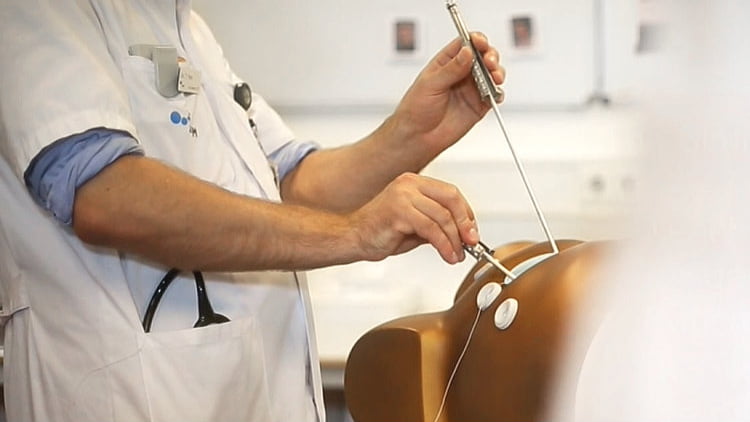Dedicated Heart Team
Multidisciplinary decision-making has been well established for various fields of medicine and is associated with improved survival.

This multidisciplinary concept to cardiovascular diseases, the Heart Team, has gained interest in light of the emergence of new technologies and therapeutic options for patients with complex cardiovascular disease. In current practice, the Heart Team focuses on the partnership of the cardiovascular surgeon with an interventional cardiologist for evaluating patients with different cardiovascular disease. Furthermore, the concept of Heart Team has been mainly applied for decision-making for patients for whom multiple procedural options are available, for compliance purposes and unfortunately as perfunctory checkbox.
The concept of Heart Team is novel and still ill-defined. Although intuitively its implementation is a logical step for improving patientcare, limited real-world data exists about its consequences. Additional to this, patients with cardiovascular disease need a life-time management of their condition for which there is a need for multidisciplinary dedicated Heart Team that go beyond the decision making alone.
Smart Interventions
Surgical and interventional procedures are composed of many technical steps and their outcomes are logically dependent on skills of individual surgeons but also on the anatomy of the individual patients.

Smart Surgery/Interventions is the umbrella terminology -introduced by the Academy- for an interdisciplinary and multidisciplinary interplay for development and application of dedicated tools like 3D-image reconstruction, 3D-printing, intra-operative navigation, digital health, digital twin, AI and simulation for training, selecting patients, predicting outcomes, planning and performing interventions, with mathematical precision.
The applicability of these new technologies is apparent for practicing surgeons and interventional cardiologists. All these new developments are still in infancy and need further tailored development for cardiovascular procedures. Therefore, there is a need for collaborations between physicians, healthcare engineers, mathematicians and other professionals to enhance the further development in this field. The academy is adamant in providing a platform that stimulates these needed collaborations.
Education
Even the best collaborative platform would not work without proper training of its team members.

Simulation-based training has been well described for general surgery and proven to be effective by reducing the learning curve of in-vivo procedures. As cardiovascular procedures become more technical, the patient population more complex and aged, and there is more restriction in time spent in training, a new philosophy in training interventional cardiologists and surgeons becomes necessary.
For simulation-based training, there is a need for innovation and development of new simulation-platforms and development of air-pilot training courses to accommodate the need for our disciplines. Here again we need to join forces from different disciplines to forward our objectives.
Our current training courses:
Tele-simulation training course for endoscopic mitral valve surgery
Digital healthcare
Here we introduce the convergence of various technologies for training, patient education, telemedicine, tele-simulation, artificial intelligence, virtual reality and wearable technologies.

The academy will promote research and innovation on digital health for patient information, for pre-habilitation and rehabilitation. Furthermore, the academy will promote the establishment of virtual modalities for cardiovascular training, virtual proctoring and virtual visiting fellowships.